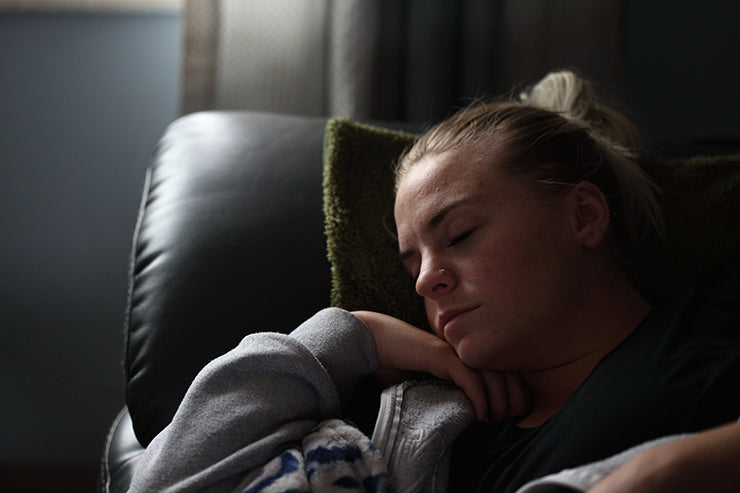
If you live to be 80 years old, you will have spent about 23 of those years asleep. What happens to your mind and body during all these years while sleeping? If you are fortunate enough to have “good sleep” then the benefits are innumerable, however for those with “poor sleep” the cost can be high, including your longevity. Poor sleep can reduce the quality of life and increase the likelihood of injury. The number of daily functions that are impacted by sleep is so great that you should think of sleep as the “hub of the wheel” for daily well-being.

Research has clearly demonstrated that for each of the areas in the figure above, poor sleep has a negative impact and good sleep has a protective benefit. For example, poor sleep disrupts the modulation of hormone function (ghrelin and leptin) and glucose metabolism, resulting in increased hunger and appetite and a risk for obesity. On the other hand, achieving deep sleep assists in muscle, bone, and cellular recovery essential to experiencing the benefits after strenuous exercise.
In the brain, several regions are affected by poor sleep (eg. the frontoparietal network and the thalamus), impacting attention, working memory, and the processing and regulation of positive and negative emotions. Given the importance of these brain functions, it’s no surprise that good sleep supports healthy social relations with colleagues, friends, and partners.

When thinking of sleep, the basics are simple. First, sleep debt is the difference between the sleep you as an individual need and the amount you get. Sleep debt starts building as soon as you wake up, and you pay that debt with a good night of sleep. If you have poor sleep, then you have slept fewer hours than needed and some debt remains. This causes you to feel tired and groggy in the morning, often diminishing levels of motivation and perseverance. The second is your circadian rhythm or biological clock. This internally driven daily clock is affected by light and dark and tells you when it is time to sleep. The third is the environment (room temperature, comfort, sound, light) and your psychological framework (stress, arousal, anxiety, calm). For most people, the easiest way to ensure good sleep is to attend to this third factor.
Once asleep, the story gets a bit more complicated and interesting. There are different processes occurring depending upon the phase of sleep you are in; this is often referred to as sleep architecture. The basic structure of sleep involves NREM (non-rapid eye-movement) which is divided into 4 stages and REM (rapid eye-movement). The 4 stages of NREM reflect the depth of sleep from light to deep sleep and REM is when dreams occur. All stages of sleep are important for health. To get “good sleep” means that you were able to easily fall asleep and have cycled through all phases of sleep about 4 to 6 times over the night. Do this and you will awaken feeling refreshed. Poor sleep indicates a notable disruption in the ability to fall asleep or stay asleep, impeding your sleep cycles. Depending on where in the cycle your sleep is disrupted, different spokes along your health wheel are more or less impacted.

Those that cannot fall asleep at bedtime and force themselves awake in the morning know they have had a bad night of sleep**.** For others, they believe they have gotten enough sleep e.g., 7 to 8 hours on average, but still feel fatigued in the morning. This may be due to micro-arousals during sleep, which are ****multiple brief awakenings during the night that are not recalled. In response to their fatigue many use stimulants such as coffee to try to compensate. Unfortunately, they remain in sleep debt. Fitness trackers that monitor movement and heart rate during sleep can provide great clues to the occurrence of micro-arousals and the quality of your sleep. However, you should not rely on fitness trackers if you have serious concerns about your sleep. If you do have serious concerns about your sleep please consult your physician or a sleep specialist.
Of course, there are many who wake up in the night and are fully aware. In fact, they are often very upset by this and experience stress around falling back asleep. Getting back to sleep easily in the middle of the night can be learned with proper training, but unfortunately, the harder you try to fall back to sleep, the harder it actually is.
In each of these situations, there is a reciprocal relationship between the hours asleep and the hours awake. Poor sleep negatively impacts health and poor health negatively impacts sleep. Similarly, good sleep promotes daily well-being, which in turn leads to good sleep. If you wish, there are several things you can do to either improve or maintain the quality of your sleep. In my next article, I will discuss what good sleep hygiene can do for you and your overall health.



